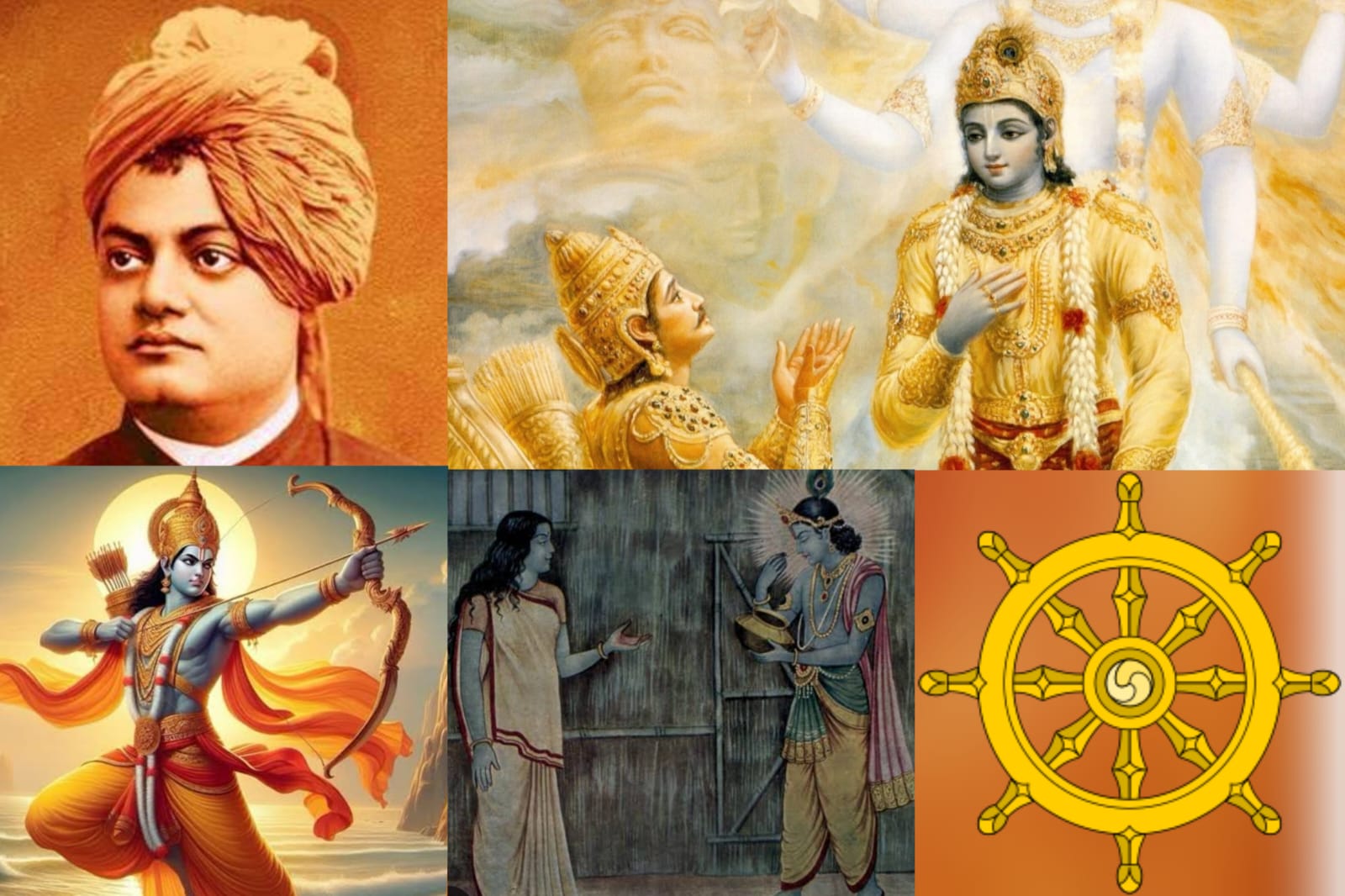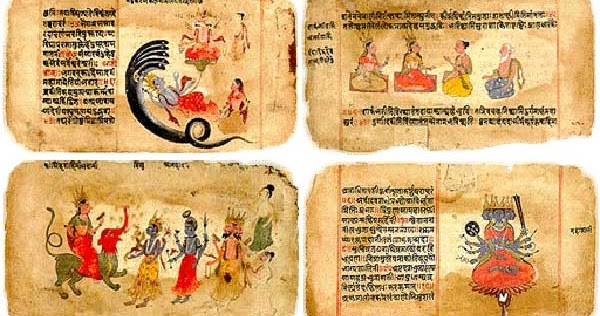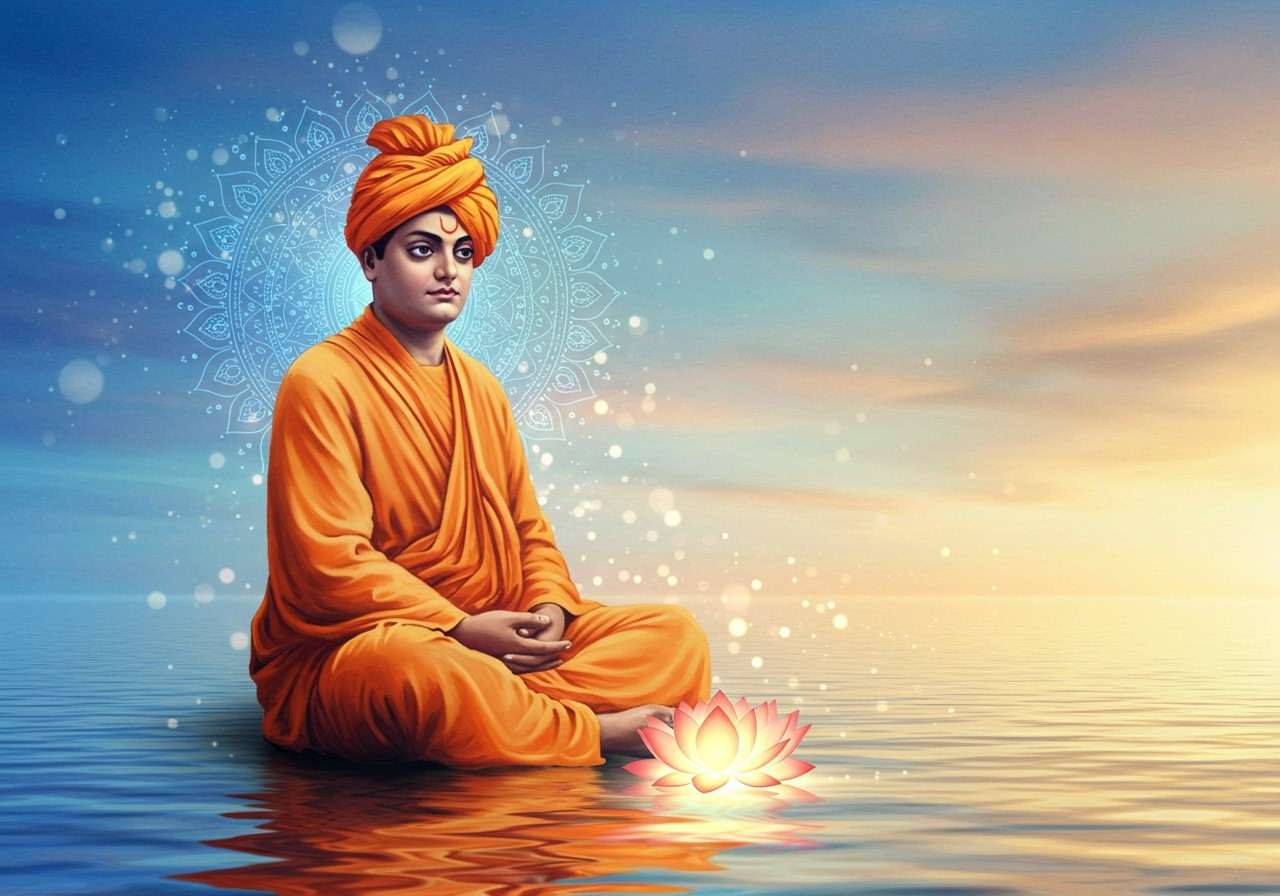By Dr. Bhupendra Kumar Sullere
"A nation triumphs through Dharma" — this is not just a slogan but has been the fundamental essence of Indian national life. Today, as the nation and society pass through a phase of cultural transition, it has become imperative to re-understand the concept of ‘Dharma’ in its original Indian definition — not merely a mode of worship, but a collective sense of duty and conduct for the welfare of all.
Dharma means “that which is to be upheld or practiced.” It is not limited to spiritual or religious doctrine, but manifests as lived ethics, social responsibility, and the path of self-purification. Scriptures like the Shrimad Bhagavad Gita, Manusmriti, and Hitopadesha present Dharma as duty and a means to achieve Purusharthas (the four life goals): Dharma (righteousness), Artha (wealth), Kama (desire), and Moksha (liberation). Among these, Dharma is the foundation of social balance and spiritual progress.
In the words of Swami Vivekananda, "He who finds his victory in the victory of the collective, is forever victorious." This is the essence of Sanatana Dharma — to see service to others, self-discipline, and inner realization as one and the same.
The Dharma of the Gita: A Culture of Duty
In Chapter 16 of the Bhagavad Gita, Lord Krishna elaborates on various forms of Dharma — a fearless life, truth, non-violence, austerity, self-study, compassion, forgiveness, inner strength, self-restraint, and a life dedicated to the welfare of others. Dharma is not a ritualistic act but Karma Yoga — a way of living where self-interest is secondary and public good is primary.
Today, as society veers toward materialism, careerism, and self-centeredness, the pressing question arises: Are we aware of our Dharma — our duties?
Indian Culture: Dharma vs. Civilization
Pt. Shriram Sharma Acharya writes: “Dharma and civilization have been kept distinct in Indian culture. Dharma is eternal — such as moral codes, compassion, forgiveness, restraint, truth, and sacrifice. Civilization, on the other hand, is time-bound — shaped by customs, rituals, and practices. The goal of Dharma is to build character, not merely to uphold tradition.”
In a time when the word Dharma is often misrepresented as communal or ritualistic, it becomes critically important to reiterate that its core aim is not personal salvation but universal welfare — it is the soul of India.
The Call of Yugadharma: Invoking the Noble in the Battle of Good and Evil
Today’s era mirrors a symbolic Deva-Asura Sangram — a battle between divine forces like Dharma, compassion, reason, and humanity on one side, and forces of Adharma, violence, selfishness, and hedonism on the other. Neutrality is no longer an option. Even the inactive become accomplices of Adharma.
In the face of ongoing cultural assaults on Sanatana Indian values, there is an urgent need for the righteous forces to unite and fulfill their Yugadharma — the duty of this age. For India’s destiny to become Vishwaguru (world teacher) is divinely ordained, but it demands inner strength, wisdom, sacrifice, and a renaissance of culture.
The Final Call: Dharma is the Foundation of National Character
India’s true strength does not lie in wealth or material power, but in its sages, thinkers, ascetics, and servants of society. When people abide by their religious-moral duties, the nation ascends. Today’s generation must realize that Dharma is not mere preaching — it is disciplined conduct, demanding every citizen to uphold their responsibility.
Slogan: "As is the thought, so is the destiny" — If India is to become a great power, its path must be rooted in Dharma.






